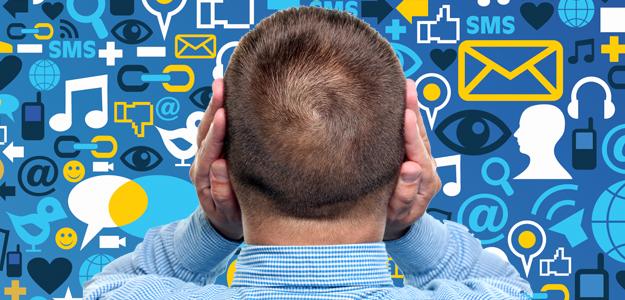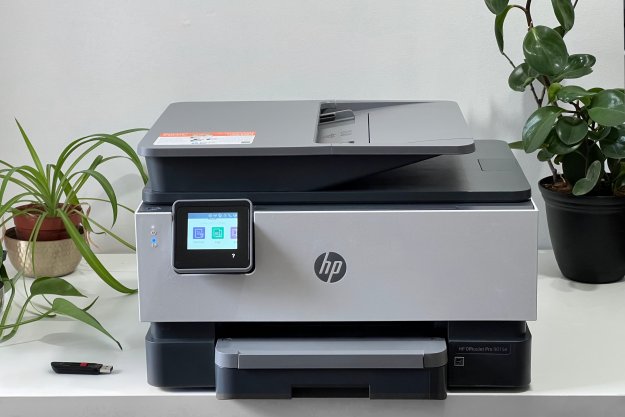 Social media can be a great way to keep in touch with friends, find out what’s going on in the world, or just catch up with the latest memes. It can also be a hellish stream of drivel which reminds you of a roomful of people all competing to see who can shout the loudest and completely ignoring everyone else. People have always made jokes about the pointless nature of much of what is shared on social media, and there’s some kernel of truth there. I don’t care what anyone had for lunch, unless you ate a monster truck and you have a video of yourself doing it.
Social media can be a great way to keep in touch with friends, find out what’s going on in the world, or just catch up with the latest memes. It can also be a hellish stream of drivel which reminds you of a roomful of people all competing to see who can shout the loudest and completely ignoring everyone else. People have always made jokes about the pointless nature of much of what is shared on social media, and there’s some kernel of truth there. I don’t care what anyone had for lunch, unless you ate a monster truck and you have a video of yourself doing it.
The thing is, most people know better than to share inanities nowadays. We are becoming more sophisticated in our use of it and social media can actually be a powerful outlet sometimes, a cultural conduit on the world. Sadly, despite a certain maturing of our social-media habits, our streams remain clogged with unwelcome entries. The problem of feeds full of irrelevant nonsense is fast becoming much, much worse and it’s all thanks to spam advertising by the back door, otherwise known as passive sharing.
Passive sharing has gone too far. It’s time we rose up and demanded less spam in our social media. Who’s with me?
What is passive sharing?
You’re passively sharing on social networks whenever some information about your life is broadcast out to friends without any initiation on your behalf. For instance, configuring Spotify to share what you’re listening to at any given moment is passive sharing.
You could look at passive sharing a number of ways. Passive sharing is narcissistic commentary for egomaniacs who are too lazy to post their own status updates. Passive sharing is the automation of completely pointless information. Passive sharing is a cheap form of targeted advertising. Passive sharing is a wonderful way to get recommendations on great new things to read and buy from the people who really matter to you.
Personally, I think it’s a mixture of three of those statements. I’ll let you guess which ones.
Is passive sharing always bad?
Yes. If you can think of a situation when it isn’t, then please post a comment. I understand the potential utility of finding out what my friends and family are doing, or what they like, but if they can’t be bothered to share it themselves, then it doesn’t look like a resounding recommend to me. The trouble is what we’re really talking about here is a running commentary on what they are doing. The fact they listened to this song, completed this achievement in a game, or read an article on something does not tell me what they thought about it.
The first time I can really remember seeing passive sharing was in MSN Messenger when it would tell me what songs my contacts were listening to. I guess BBM (BlackBerry Messenger) would do it with involuntary read receipts, so whoever just sent you a message would know if you had read it. That read receipt has been rolled out into most messengers now, and it’s arguably the most useful application of passive sharing that I’ve ever seen, but I still hate it. I’d gladly stay in the dark about whether someone has read the last message I sent yet, than feel compelled to quickly reply to messages I receive because the sender knows I already read them.
Advertising spam
Apps on all sorts of platforms now want permission to plug into your existing social media accounts, and the problem of passive sharing has exploded. All of these apps are just looking for opportunities to advertise their wares.

Passive sharing in most apps is turned on by default. They ask for permission to access your Facebook account, Twitter profile, or whatever else, when you first install them. Some apps can’t even be used without a Facebook account. When you accept this and give the app access, it starts broadcasting your actions to your friends and contacts.
Who wants this?
Who does this serve? Do you want people to know what you just read, what you are listening to, what you just bought, that your farm needs more goats, or you just slayed a troll? Even if you do want to share some things, surely you don’t want to share everything? Wouldn’t you prefer to be able to choose?
Think of all the people on the other end. How many of your Facebook friends are interested in your reading habits, or how you just awarded someone +K in knitting on Klout, or beat Aunt Bessie at SongPop? I’m going to hazard a guess at “none.”
The truth is, only app developers and publishers see any benefit from passive sharing, because they are using you to get to your loved ones, friends, and even casual acquaintances. They are using you to broadcast ads for free. The result is timelines and streams that are full of junk we don’t want to read. The social media experience is genuinely degraded by passive sharing. I used to get curated information from my friends, now I get automated dross.
Why does social media allow it?
This is the big question. If social media sites and services want to make money from advertising, and Facebook definitely does, then why allow advertising spam to sneak into our feeds when they don’t earn on it? If they won’t kill passive sharing because users don’t like it, then maybe they’ll kill it because it dilutes their potential to sell advertising.
Perhaps platforms like Facebook are now realizing that the easy integration that has made their brands ubiquitous is a double-edged sword. Is there an easy way to get it back under control now that the horse has bolted? Maybe. Put it this way – if they offered a tick box tomorrow that allowed you to turn off all passive sharing, outgoing and incoming, how many of you would tick it?


